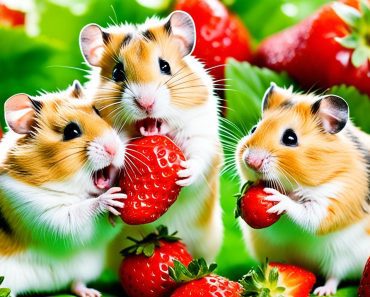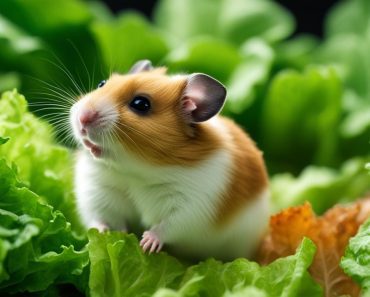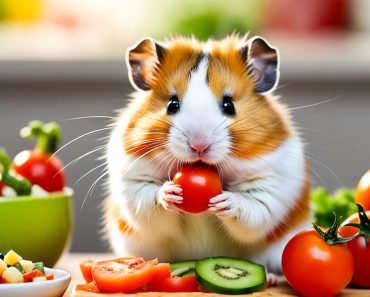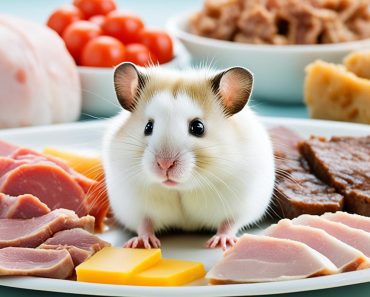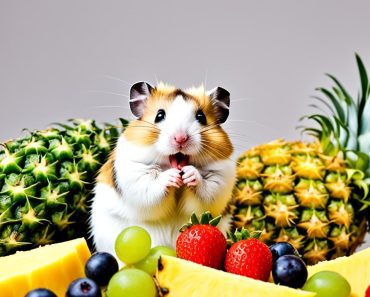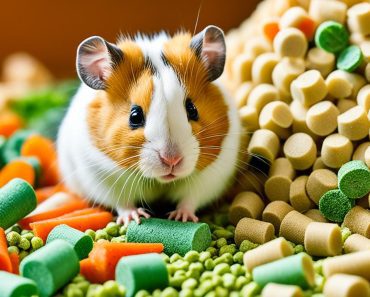As a hamster owner, I always want to make sure my furry friend is happy and healthy. One question I often come across is, “Can hamsters eat popcorn?” It’s a popular snack that many of us enjoy, but is it safe for our little companions? In this article, I will provide you with all the information you need to know about feeding popcorn to hamsters and share some safe snacking tips.
When it comes to popcorn, hamsters can enjoy plain air-popped popcorn as an occasional treat. However, there are a few important things to keep in mind. It’s crucial to ensure that the popcorn is free from any additives, butter, salt, or seasonings. Microwave popcorn and popcorn kernels should be avoided as they can be harmful to hamsters’ health.
Flavored popcorn is also a big no-no for hamsters. The additives and artificial flavors in these varieties can lead to serious health problems. Buttered popcorn, in particular, is high in fat and salt. Consuming such popcorn can cause obesity, fatty liver disease, and heart problems in hamsters. Caramel popcorn, with its high sugar content, can contribute to diabetes and tooth decay.
Popcorn kernels pose a choking hazard to hamsters and can also lead to dental problems and constipation. Therefore, it’s best to stick to plain air-popped popcorn if you want to offer this snack to your furry friend.
While popcorn may not be an essential part of a hamster’s diet, it does contain some nutritional benefits. Air-popped popcorn provides fiber, magnesium, and zinc, which can contribute to good digestive health and overall well-being for your hamster.
Can Hamsters Eat Popcorn? Yes, they can. but with proper caution.
- Hamsters can eat plain air-popped popcorn as an occasional treat.
- Avoid popcorn with additives, butter, salt, or seasonings.
- Flavored popcorn is dangerous and should be avoided.
- Popcorn kernels pose a choking hazard and can cause dental problems and constipation.
- Plain air-popped popcorn has nutritional benefits like fiber, magnesium, and zinc.
Hamster Diet and Nutrition
A healthy diet is essential for the well-being of your hamster. Providing your furry friend with a balanced and nutritious diet will help ensure optimal health and longevity. Here are some key aspects to consider when it comes to hamster diet and nutrition:
High-Quality Hamster Pellets
One of the main components of your hamster’s diet should be high-quality commercial hamster pellets. These pellets are specially formulated to provide the right balance of carbohydrates, protein, fiber, and fat that your hamster needs for optimal growth and development. Make sure to choose pellets that are specifically designed for hamsters, as they have different dietary requirements compared to other small pets.
Varied Fruits and Vegetables
In addition to hamster pellets, your hamster can benefit from a variety of fresh fruits and vegetables. These should make up about 10% of their overall diet. Choose options such as carrots, apples, peas, bell peppers, and cucumbers. These fruits and vegetables provide essential vitamins, minerals, and fiber that contribute to your hamster’s overall health.
Hydration with Clean Water
Ensuring your hamster has access to clean and fresh water is crucial. Provide them with a water bottle or a water bowl, and make sure to change the water daily. The recommended daily water intake for hamsters is about 10 milliliters per 100 grams of body weight. Keeping your hamster hydrated helps support their digestion and overall well-being.
Gnawing Food for Dental Health
Hamsters have constantly growing teeth, so it’s important to provide them with gnawing food to wear down their teeth naturally. Include items such as hazelnuts, willow branches, and quinces as part of their diet. These chewable items help prevent dental problems and keep their teeth in good condition.
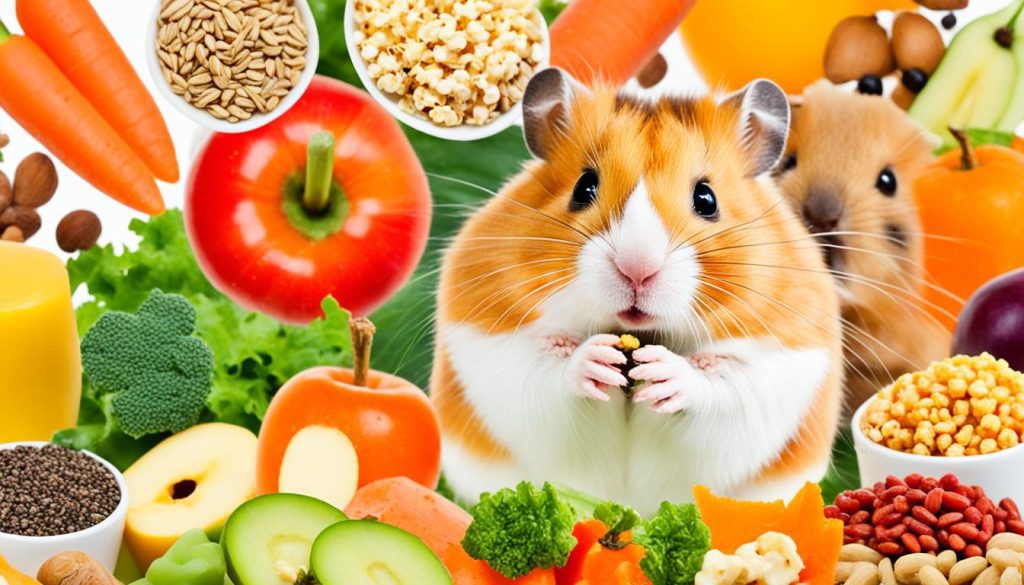
Healthy Snacks for Hamsters
In addition to plain air-popped popcorn, hamsters can enjoy a variety of other healthy snacks. These treats not only provide them with a delicious alternative but also offer nutritional benefits. Remember, it’s important to offer these snacks in moderation and not as a replacement for their main diet. Here are some safe and recommended snacks for hamsters:
- Fruits: Small pieces of fruits like apples and carrots can be a tasty and nutritious treat for your hamster. They provide natural sugars, vitamins, and minerals that contribute to their well-being. Just make sure to remove any seeds or pits and offer them in small portions.
- Cooked Vegetables: Hamsters can also enjoy cooked vegetables such as peas and broccoli. These provide essential nutrients and are easy for them to digest. Steaming or boiling the vegetables without any seasonings or additives is the best way to prepare them.
- Commercial Hamster Treats: There are specific treats designed for hamsters that are available commercially. These treats are formulated to meet their nutritional needs and usually come in various flavors and textures. Look for treats that are free from harmful ingredients and additives.
When offering these snacks, remember to keep the portions small and avoid overfeeding. It’s important to maintain a balanced diet for your hamster to ensure their overall health and prevent weight-related issues.
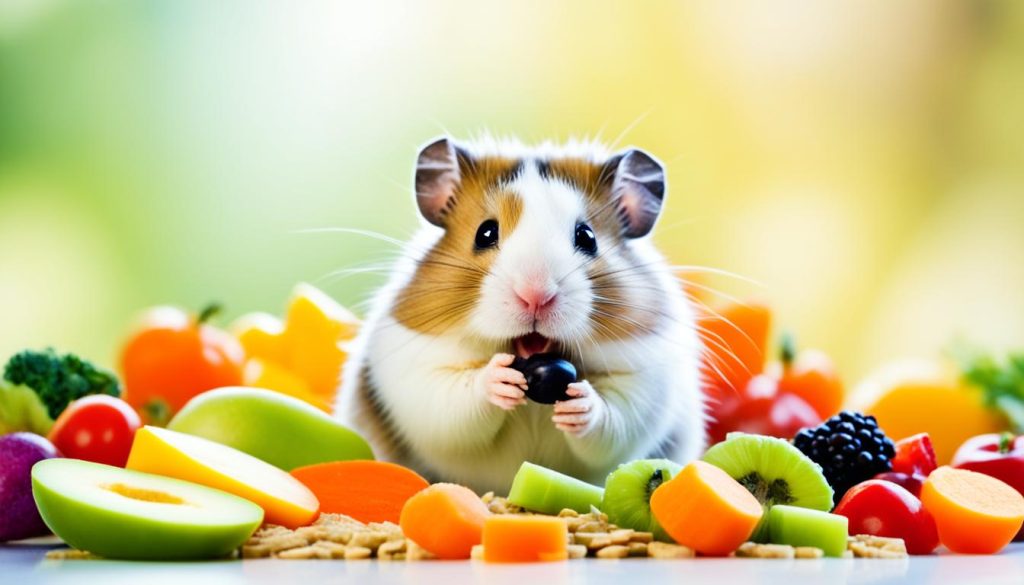
Providing your hamster with a range of healthy snacks will not only keep them satisfied but also contribute to their overall well-being. However, it’s crucial to avoid feeding them any toxic foods that can be harmful to their health. Foods like garlic, onions, almonds, chocolate, citrus fruit, raw beans, apple seeds, raw potatoes, or rhubarb leaves should be strictly avoided, as they can pose serious health risks to hamsters.
Serving Size and Frequency
When it comes to serving size and frequency, it’s important to consider the size and breed of your hamster. Smaller hamsters should have a limited serving size of one or two bite-sized pieces of popcorn per week, while larger hamsters can have up to five pieces.
Before serving popcorn to your furry friend, make sure to inspect it for any unpopped kernels. These can be a choking hazard or cause dental problems for hamsters. Always prioritize their safety and well-being.
Remember, popcorn should only be given as an occasional treat and should not replace their main diet. It’s essential for hamsters to receive all the necessary nutrients from their regular food. By practicing portion control, you can ensure that your hamster is maintaining a balanced diet.
By following these guidelines, you can provide your hamster with a treat while still prioritizing their health and nutrition. Remember to consult with a veterinarian who specializes in small animals if you have any concerns or questions about serving sizes or any other aspects of your hamster’s diet.
Satisfying and Engaging Your Hamster
Hamsters are intelligent and curious animals who thrive on mental stimulation and playtime. To keep your furry friend entertained, consider providing them with engaging toys and opportunities for mental exercise. One popular toy option for hamsters is a maze or puzzle game.
A maze or puzzle game can keep your hamster active and mentally stimulated. You can create a fun game of hide-and-seek by hiding a few pieces of popcorn in the maze or within a piece of cardboard. This will challenge your hamster’s problem-solving skills as they navigate through the maze to find their tasty treats.
Not only does this provide mental stimulation, but it also offers physical exercise as your hamster explores and interacts with the toy. It’s important to choose a maze or puzzle game that is the appropriate size for your hamster, ensuring they can navigate through it comfortably.
Remember to supervise your hamster during playtime and remove any small or potentially hazardous parts from their toys to ensure their safety. Regularly rotating and introducing new toys can also help keep your hamster engaged and prevent boredom.
By providing your hamster with engaging toys and mental stimulation, you can create a stimulating and enriching environment that promotes their overall well-being and happiness.
Conclusion
It is safe for hamsters to have plain air-popped popcorn as an occasional treat. However, it’s important to serve it without any additives, butter, salt, or seasonings. Popcorn should never replace their main diet, which should consist of high-quality hamster pellets, fruits, vegetables, and gnawing food.
Although popcorn can be enjoyed by hamsters, it should be offered in moderation to prevent potential health issues such as obesity, dental problems, and constipation. Providing a balanced and nutritious diet is crucial for the overall well-being of your furry friend.
Additionally, engaging your hamster with toys, mazes, and puzzles can provide mental stimulation and help keep them entertained. This, along with a proper diet, ensures that your hamster is happy and healthy.
Remember, when it comes to your hamster’s diet, it is always best to consult with a veterinarian who specializes in small animal care. They can provide specific dietary recommendations based on your hamster’s individual needs. By taking proper care of your hamster’s diet and well-being, you can enjoy many happy and healthy years together.

